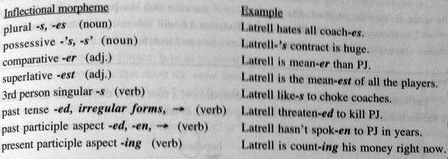[What follows is a guest post reporting on a very disturbing situation at King's College London involving the sacking of senior computational linguists and others in a secretly planned, tragically stupid, and farcically implemented mass-purge. The author of the post is currently employed at KCL, and for obvious reasons must remain anonymous here.
Although it is clear that KCL is suffering from severe budgetary problems, the administration has reacted to the problems inappropriately and unconscionably: the administration is sacking some of KCL's most successful, academically productive and influential scholars, showing arbitrariness and short-sightedness in its decision making, and acting with extreme callousness in the manner by which the decisions have been imposed on the victims.
For those out of the field, I would note that I and other Language Loggers are intimately acquainted with the work of those under fire at KCL. It is among the most important work in syntax, semantics, pragmatics, and computational linguistics, presenting ideas that many of us cite regularly and have absorbed into our own work, and which nobody in the field can ignore. – David Beaver]
Philosophers have been aghast at recent developments at King's College, London
where three senior philosophers, Prof Shalom Lappin, Dr Wilfried Meyer-Viol and Prof Charles Travis, have been targetted for redundancy as part of a restructuring plan for the KCL School of Arts and Humanities. The reason for targetting Lappin and Meyer-Viol has been explained to be that KCL is `disinvesting' from Computational Linguistics. One of the many puzzling aspects of this supposed explanation for targetting Lappin and Meyer-Viol is that there is no computational linguistics unit in Philosophy to disinvest from. (For detailed coverage see the Leiter Report here, here, and here, and these letters protesting the actions taken in the humanities.)
Read the rest of this entry »

